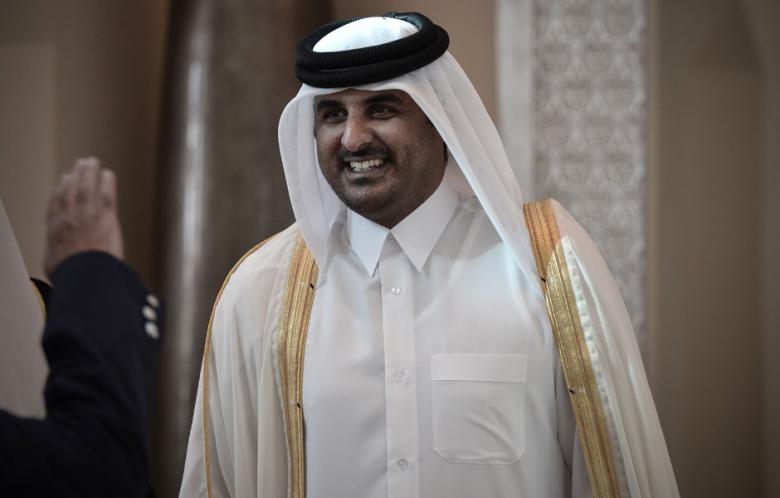
Rasa News Agency reports - The visit, which came at the invitation of the Emiri Diwan, aimed to thank the emir of Qatar for his country's efforts in freeing them. This came after the Turkish ambassador to Lebanon, Inan Ozyildiz, extended several invitations to Hajji Hayat and the detainees to hold a "reconciliation meeting" at his embassy in Beirut, following accusation that Turkey was involved in the kidnapping and was protecting the kidnappers. However, the invitation was repeatedly rejected. So why was the Qatari invitation accepted seven months after the hostages were released?
On April 5, the Aazaz delegation met at Beirut airport to fly to Doha. Ali Abbas, one of the freed detainees, could not join them since the General Security Office had just issued him his passport. When the Emiri Diwan found out that the delegation would be missing one person, calls were made for him to be allowed to fly with his companions. This attention was preceded and followed by exemplary care, which is only paralleled by Qatar's new role.
Speaking to Al-Akhbar, Khalil indicated that he had proposed the "Thank you Qatar" visit to the Qatari embassy in Beirut the moment the detainees returned to their country. One week later, and in coordination with the detainees and Hajja Hayat, he sent a request to the embassy proposing a visit to Doha.
The emir knows very well who his guests are, confessionally, politically, and regionally.Months passed without receiving an answer. However, around one month ago, Khalil sent the request to the Emiri Diwan directly, in coordination with the Syrian activist and peace ambassador, Rihab Bitar, who also attended the meeting. They received a positive reply and were informed of a meeting date one week ago. On April 5, cars courtesy of the Qatari government met them at the Doha airport at the steps of the airplane.
The Qatari emir met with the freed detainees for 30 minutes, surpassing the allotted time and protocol, and cementing Qatar’s return to the axis of resistance.
According to Awali, the emir warmly welcomed them and made sure to take pictures with all of them and requested that their stay be extended to three days in accordance with Arab hospitality. He explained that in humanitarian situations his country rises above political differences, like it did in their case.
"We saw the humanitarian issue as a priority since the first day you were kidnapped," the emir said. "We worked hard so you would not be harmed and returned safely to your families." He indicated that he had studied in Beirut and loves the Lebanese and the Shia community, to whom his guests belong. The emir maintains that he does not differentiate between Sunni and Shia Muslims, and loves the Levant as a model for coexistence.
Speaking to them as if they were high ranking officials, he elaborated on the Qatari approach to the Syrian crisis. He said that, at first, his country supported the rights of the Syrian people. However, the situation has changed and turned to killing and bloodshed, which should be stopped. He stressed that the only a political solution can solve what is happening in Syria.
Former Qatari ambassador in Beirut, Saad bin Ali al-Mohannadi, also attended the meeting. It was during his term that the kidnapping occurred, and the families' protests were held in front of his embassy. He reminded the emir that Awali was leading the protests against Qatar, so she reminded the emir also that the ambassador had refused to meet with the families. The emir interrupted, saying that "the embassy's key is yours and you can enter whenever you want."
At the end of the meeting, the delegation presented the emir with a gift, consisting of a copy of the Koran and a poem in his hommage read by freed mayor Ali Zoughaib.
Both sides are certain that the "dialogue of friendship and affection," and the hospitality witnessed by the freed detainees at the Emiri Diwan will be reaching Dahiyeh. Doha's message comes less than a month after a Qatari envoy had visited Tehran and five months following the visit by the current Qatari ambassador to Beirut to Hezbollah's Deputy Secretary General Sheikh Naim Qassem in Haret Hreik.
This was from Qatar's side, but what about Hezbollah? Positive signals by the party are no less significant than those from the Qataris. The emir knows very well who his guests are, confessionally, politically, and regionally. He knows that some would not have accepted the invitation without permission from Hezbollah.